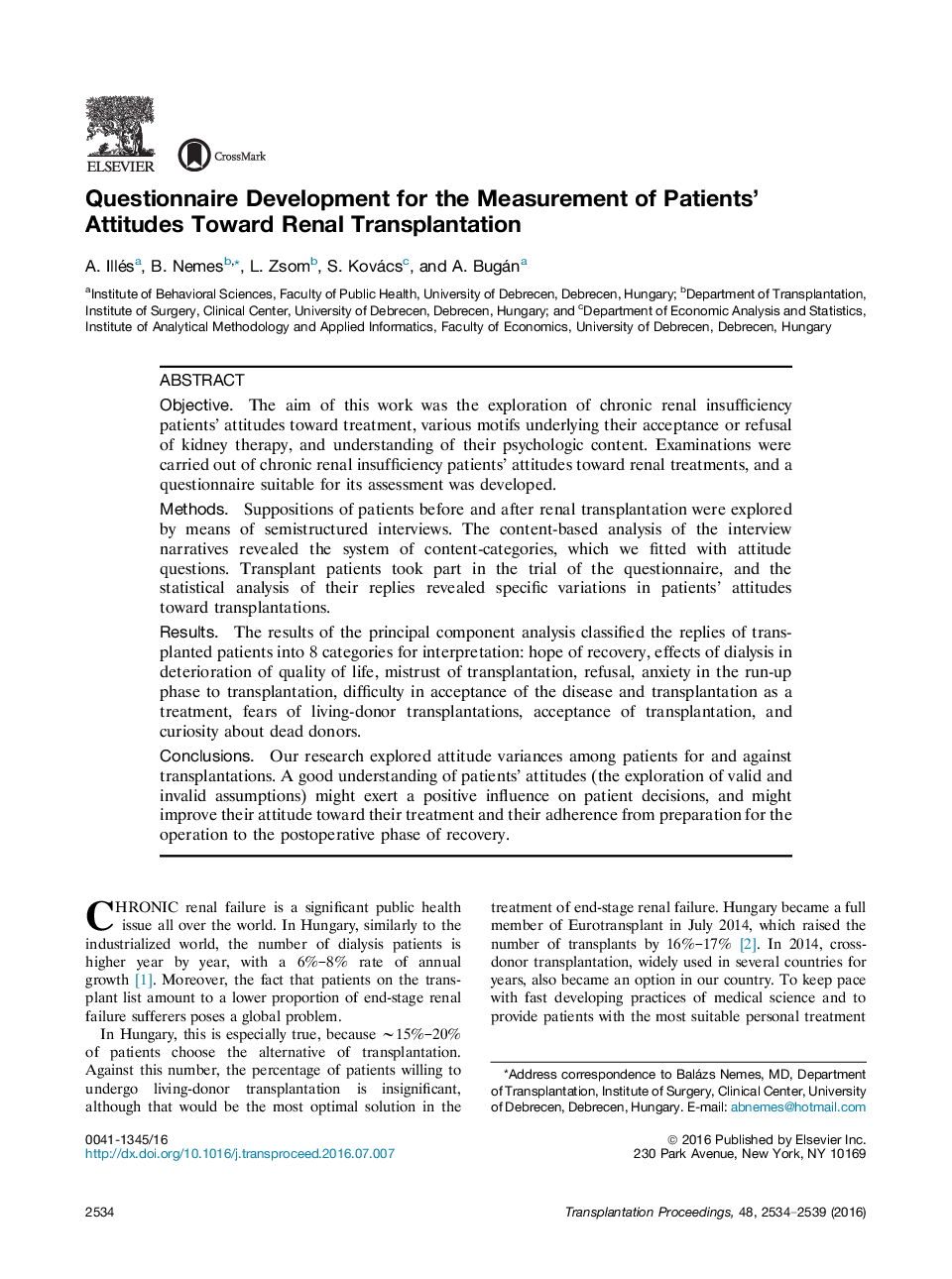| Article ID | Journal | Published Year | Pages | File Type |
|---|---|---|---|---|
| 5729411 | Transplantation Proceedings | 2016 | 6 Pages |
ObjectiveThe aim of this work was the exploration of chronic renal insufficiency patients' attitudes toward treatment, various motifs underlying their acceptance or refusal of kidney therapy, and understanding of their psychologic content. Examinations were carried out of chronic renal insufficiency patients' attitudes toward renal treatments, and a questionnaire suitable for its assessment was developed.MethodsSuppositions of patients before and after renal transplantation were explored by means of semistructured interviews. The content-based analysis of the interview narratives revealed the system of content-categories, which we fitted with attitude questions. Transplant patients took part in the trial of the questionnaire, and the statistical analysis of their replies revealed specific variations in patients' attitudes toward transplantations.ResultsThe results of the principal component analysis classified the replies of transplanted patients into 8 categories for interpretation: hope of recovery, effects of dialysis in deterioration of quality of life, mistrust of transplantation, refusal, anxiety in the run-up phase to transplantation, difficulty in acceptance of the disease and transplantation as a treatment, fears of living-donor transplantations, acceptance of transplantation, and curiosity about dead donors.ConclusionsOur research explored attitude variances among patients for and against transplantations. A good understanding of patients' attitudes (the exploration of valid and invalid assumptions) might exert a positive influence on patient decisions, and might improve their attitude toward their treatment and their adherence from preparation for the operation to the postoperative phase of recovery.
